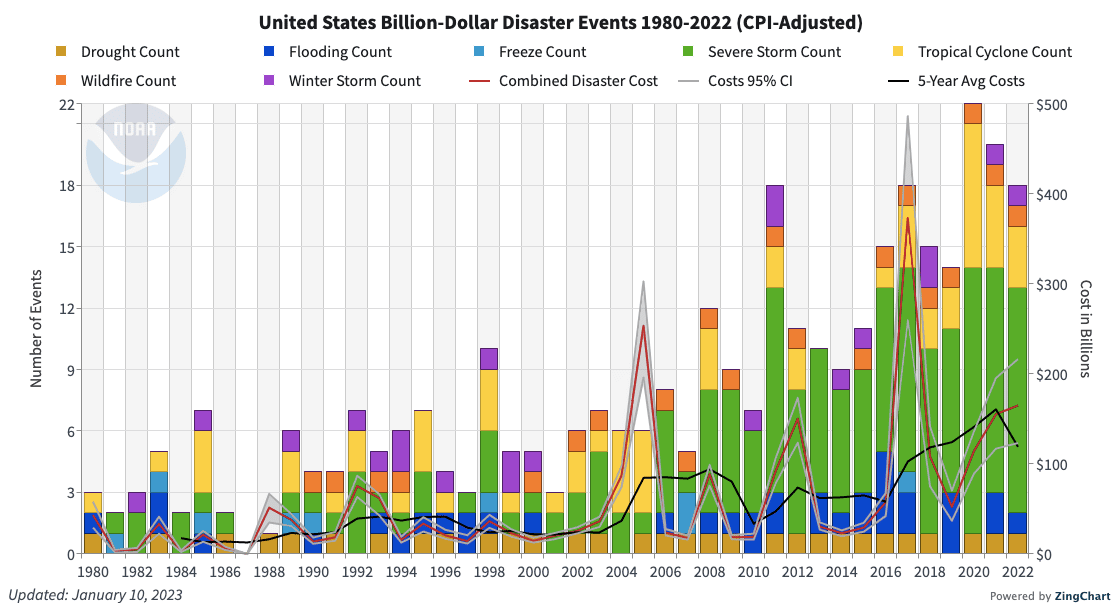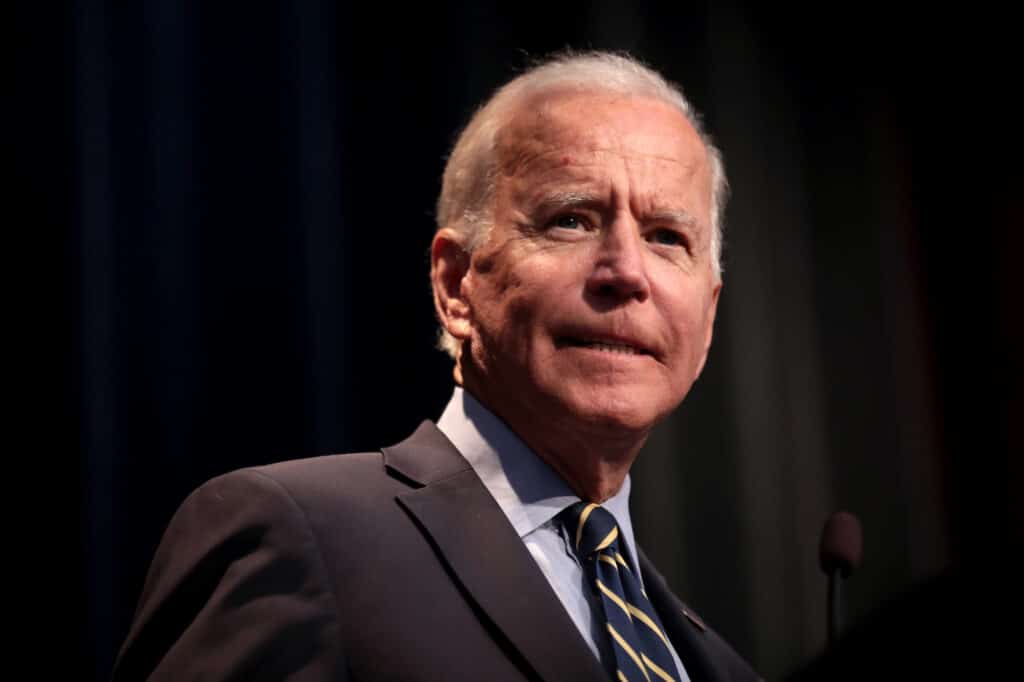US President Joe Biden released the budget for the fiscal year 2024, which includes billions of dollars to combat climate change and boost conservation.
—
President Joe Biden unveiled a sweeping 2024 budget proposal that would end oil and gas subsidies, raise taxes on the wealthy, scale up clean energy as well as allocate resources and money to build communities’ resilience to climate-fuelled weather events like floods, heatwaves, and wildfires.
The $6.8 trillion budget plan resealed last week aims to funnel more cash into Biden’s policy priorities, including slashing emissions and scaling up clean energy infrastructure to achieve the net-zero emissions target by 2050 as well as $24 billion to boost conservation and build community resilience to climate change.
The number of “billion-dollar disasters” hitting the US has risen sharply in recent years. According to an analysis published in January, 2022 was the nation’s third-costliest year ever for climate disasters, behind only 2017 ($373.2bn) and 2005 (253.5bn). A total of 18 major climate disasters collectively racked up $165 billion in damages and claimed 474 lives, with Hurricane Ian alone costing about $112.9 billion. Last year was also the eighth consecutive in which 10 or more billion-dollar extreme weather events have seriously affected the US.

UN Billion-Dollar Disaster Events 1980-2022. Image by NOAA.
The Biden administration is also seeking to help build communities’ resilience to droughts by investing in rural water projects, water conservation as well as recycling and reuse projects, complementing the Bipartisan Infrastructure Law. Moreover, the budget allocates $1.2 billion to increase conservation adoption and farm income across privately owned land to push for the voluntary adoption of carbon sequestration practices to reduce greenhouse gas emissions associated with the agricultural sector.
The proposal, which is already facing strong opposition from House Republicans, comes as the Biden administration continues to roll out provisions of the Inflation Reduction Act, the largest climate bill in the country’s history passed by Congress last year, which includes significant investments in renewables, particularly solar and offshore wind, new credits for nuclear power production and clean hydrogen, and incentives to develop more facilities that produce clean energy inputs, components, and finished products.
You might also like: All You Need to Know About The US Inflation Reduction Act
The White House also eyes ending fossil fuel subsidies, a move that could save an estimated $13 billion over 10 years by eliminating special tax treatments for oil and gas company investments. though experts say the plan has little chance of making it through the divided Congress. President Biden has been proposing cutting subsidies in each of his budgets since he took office but they have never made it through Congress.
The Biden administration has repeatedly criticised Big Oil for making record profits at a time when consumers are battling with rising costs associated with the global energy crisis sparked by Russia’s invasion of Ukraine.
Just a day after unveiling the 2024 budget and plans to curb oil and gas leasing, the White House announced it will approve a major and controversial oil drilling project in northwest Alaska, despite green groups and opponents warning that it will exacerbate climate change. Under the draft plan, Alaska’s largest crude oil producer and largest owner of exploration leases ConocoPhillip would be permitted to drill from three locations in the National Petroleum Reserve-Alaska, unlocking an estimated 600 million barrels of oil and about 280 million tons of CO2 emissions tied to burning it.
You might also like: Biden Veto Expected As US Senate Overturns New ESG Investing Rule For Fund Managers


















